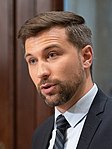| ||||||||||||||||||||||||||||||||||||||||||||||||||||||||||||||||||||||||||||||||||||||||||||||||
125 seats in the National Assembly of Quebec 63 seats needed for a majority | ||||||||||||||||||||||||||||||||||||||||||||||||||||||||||||||||||||||||||||||||||||||||||||||||
|---|---|---|---|---|---|---|---|---|---|---|---|---|---|---|---|---|---|---|---|---|---|---|---|---|---|---|---|---|---|---|---|---|---|---|---|---|---|---|---|---|---|---|---|---|---|---|---|---|---|---|---|---|---|---|---|---|---|---|---|---|---|---|---|---|---|---|---|---|---|---|---|---|---|---|---|---|---|---|---|---|---|---|---|---|---|---|---|---|---|---|---|---|---|---|---|---|
| Opinion polls | ||||||||||||||||||||||||||||||||||||||||||||||||||||||||||||||||||||||||||||||||||||||||||||||||
| Turnout | 66.05%[1] ( | |||||||||||||||||||||||||||||||||||||||||||||||||||||||||||||||||||||||||||||||||||||||||||||||
| ||||||||||||||||||||||||||||||||||||||||||||||||||||||||||||||||||||||||||||||||||||||||||||||||
 Popular vote by riding. As this is an FPTP election, seat totals are not determined by popular vote, but instead by the result in each riding. | ||||||||||||||||||||||||||||||||||||||||||||||||||||||||||||||||||||||||||||||||||||||||||||||||
| ||||||||||||||||||||||||||||||||||||||||||||||||||||||||||||||||||||||||||||||||||||||||||||||||
The 2022 Quebec general election was held on October 3, 2022, to elect the members of the National Assembly of Quebec.[4] Under the province's fixed election date law, passed in 2013, "the general election following the end of a Legislature shall be held on the first Monday of October of the fourth calendar year following the year that includes the last day of the previous Legislature",[5] setting the date for October 3, 2022.
Premier François Legault's Coalition Avenir Québec (CAQ) increased its parliamentary majority in the election. The Liberals dropped to their lowest raw seat count since 1956, their lowest percentage of seats won since 1948 and recorded their lowest share of the popular vote in their history.[6] The Parti Québecois (PQ) had its worst general election result in history, losing most of its seats, but nevertheless managed to elect its previously seatless leader Paul St-Pierre Plamondon.[7]
Previous promised plans for electoral reform were scrapped in 2021; as such, the election produced a highly distorted result which is common in Quebec's first past the post voting system.[8] As Liberal votes were concentrated on the Island of Montreal, the party received more seats than the rest of the opposition parties combined, remaining the official opposition despite finishing fourth in the popular vote. In contrast, the Conservatives increased their share of the vote to 13%; however, as their support was more spread throughout Quebec, they did not win any seats.[9] Quebecers elected the highest number of female candidates to the National Assembly in the province's history at 59, roughly 47% of the total number of seats.[10]
- ^ "Résultats des élections générales provinciales 2022".
- ^ "Gabriel Nadeau-Dubois to take leadership role in Québec Solidaire as Manon Massé steps back". CBC News. May 16, 2021. Archived from the original on April 21, 2022. Retrieved May 13, 2022.
- ^ "Québec solidaire". Élections Québec. Archived from the original on May 12, 2021. Retrieved June 20, 2017.
- ^ "Quebec fall election campaign to be launched Sunday". August 23, 2022. Archived from the original on August 26, 2022. Retrieved August 26, 2022.
- ^ An Act to amend the Election Act for the purpose of establishing fixed-date elections, L.Q. 2013, c. 13, s. 3
- ^ "Le PLQ formera l'opposition officielle". TVA Nouvelles (in French). October 3, 2022. Retrieved October 4, 2022.
- ^ Lachance, Nicolas (October 3, 2022). "PSPP fait son entrée à l'Assemblée nationale". TVA Nouvelles (in French). Retrieved October 4, 2022.
- ^ "Votes vs. seats: Quebec party leaders point to 'broken,' 'distorted' electoral system". CTV News Montreal. October 4, 2022. Retrieved October 11, 2022.
- ^ Serebrin, Jacob (October 4, 2022). "Quebec opposition parties call for electoral reform after vote, seat results". The Globe and Mail. Retrieved October 4, 2022.
- ^ "Quebec's historic 2022 election results". www.federalretirees.ca. Retrieved October 17, 2022.
Cite error: There are <ref group=lower-alpha> tags or {{efn}} templates on this page, but the references will not show without a {{reflist|group=lower-alpha}} template or {{notelist}} template (see the help page).




